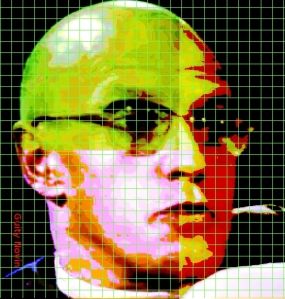This article was initially posted in the RN Philosopher’s Zone on ABC Radio (Australia). Follow this link for an interview with Tim Rayner and RN Philosopher’s Zone host Joe Gelonesi.
———————————-
Paul Krugman doesn’t tweet. The economist and New York Times columnist has over one million followers on Twitter, yet he claims that he doesn’t have time to engage them, and employs a tweet-bot to deliver titles from his blog. Krugman’s aversion to Twitter may have more to do with his dislike of chatter than with time constraints. Krugman, in 1998, famously predicted that ‘[t]he growth of the internet will slow drastically [as it] becomes apparent [that] most people have nothing to say to one another’. Since then, the chattering classes have swept to ubiquity. Twitter has 218 million active monthly users. Facebook, the current king of the social media world, has 850 million active users and is worth about 80 billion dollars.
Tech pundits claim that we have entered the social era, an age of constant, multi-channel, sharing. What drives this frenzy of exchange, and what sustains it, given that, as Krugman notes, most people have nothing to say to one another? One way of understanding these issues is to look at the psychological and motivational dynamics of gift exchanges. The enticements and rewards of tweeting, posting, pinning, and blogging come into relief when we think of this activity as gifting rather than sharing, as contributing to a common pool rather than simply chattering. [Read more…]





